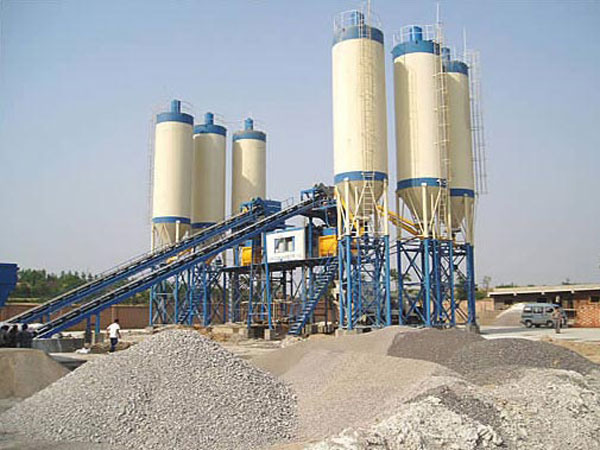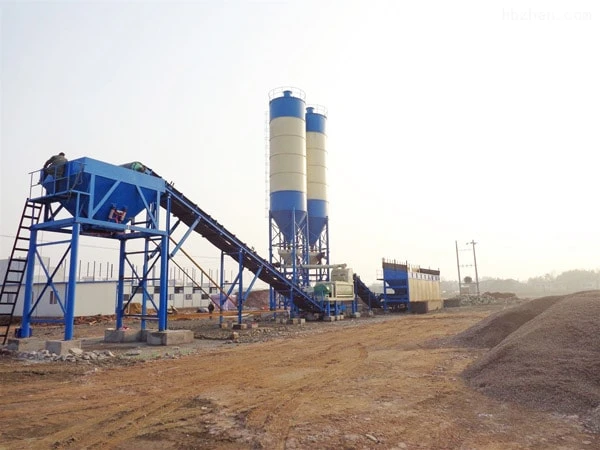

Are you seeking efficient and reliable solutions for your concrete production needs? Look no further than wet concrete batching plants.
Are you seeking efficient and reliable solutions for your concrete production needs? Look no further than wet concrete batching plants. In this guide, we’ll explore what wet concrete batching plants are, their applications, and why they’re a game-changer for construction projects of all scales.

Wet concrete batching plants, also known as central mixing plants, are designed to mix concrete ingredients thoroughly before discharge. Unlike dry batching plants, which mix ingredients only at the plant site, wet batching plants mix the concrete ingredients, including water, at a central location. This results in a more consistent and homogeneous mixture, ideal for various construction applications.
A typical wet concrete batching plant consists of several essential components:
These components work in tandem to ensure precise mixing, consistent quality, and efficient production of concrete.
Wet concrete batching plants find extensive applications across various sectors due to their versatility, reliability, and superior quality output. Here are some common applications:
From roads and bridges to dams and airports, infrastructure projects require high-quality concrete to withstand heavy loads and environmental factors. Wet concrete batching plants ensure the production of durable and strong concrete, meeting the stringent requirements of infrastructure projects.
Commercial construction projects, such as office buildings, malls, and hotels, demand consistent and uniform concrete mixes for structural integrity and aesthetic appeal. Wet batching plants deliver precisely mixed concrete, making them suitable for commercial construction applications.
Residential construction projects, including housing developments and apartment complexes, rely on wet concrete batching plants to produce concrete for foundations, floors, and other structural elements. The consistent quality and strength of concrete ensure the longevity and safety of residential structures.
Wet concrete batching plants are widely used in precast concrete production for manufacturing precast elements such as beams, columns, slabs, and panels. The precise mixing and controlled environment of wet batching plants result in high-quality precast components with minimal waste.
Large-scale construction projects, including industrial complexes, power plants, and manufacturing facilities, often require massive quantities of concrete. Wet batching plants offer the capacity and efficiency needed to meet the demands of such projects, ensuring uninterrupted concrete supply and timely completion.

Investing in a wet concrete batching plant offers numerous advantages for construction companies and project managers:
Wet batching plants produce consistent and homogeneous concrete mixes, ensuring superior quality and performance in construction projects.
The centralized mixing process of wet batching plants enhances efficiency by reducing material handling and transportation requirements.
Wet batching plants are versatile and can be customized to meet the specific requirements of different construction applications and project sizes.
By mixing concrete on-site, wet batching plants minimize waste and improve resource utilization, resulting in cost savings and environmental benefits.
Wet batching plants offer precise control over the mixing process, allowing adjustments to be made in real-time to achieve the desired concrete consistency and properties.

In conclusion, wet concrete batching plants offer a reliable and efficient solution for producing high-quality concrete for various construction applications. From infrastructure projects to precast concrete production, the versatility and advantages of wet concrete batching plants make them indispensable for modern construction projects. By investing in a wet batching plant, construction companies can ensure consistent quality, increased efficiency, and cost-effective concrete production, ultimately contributing to the success and timely completion of their projects.
